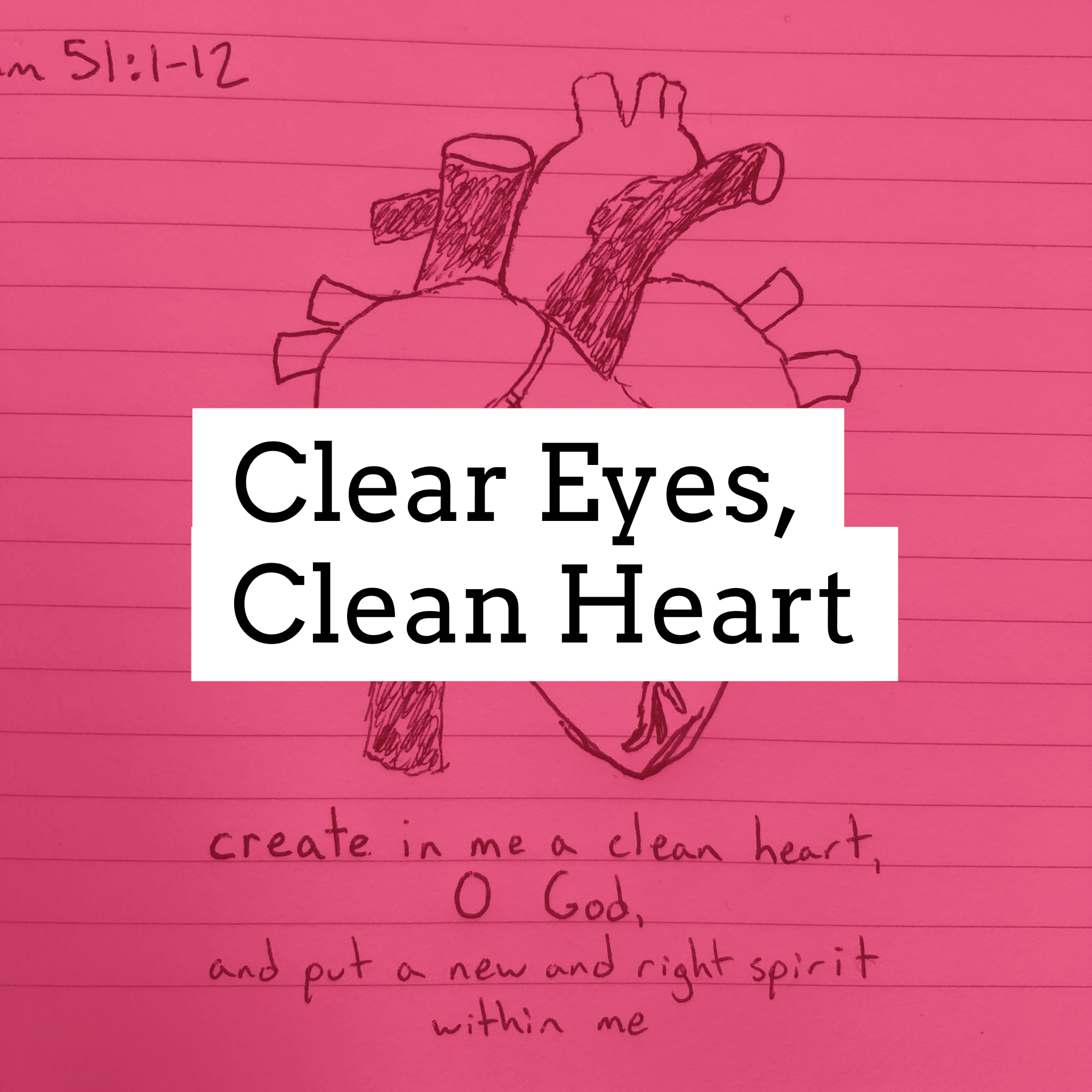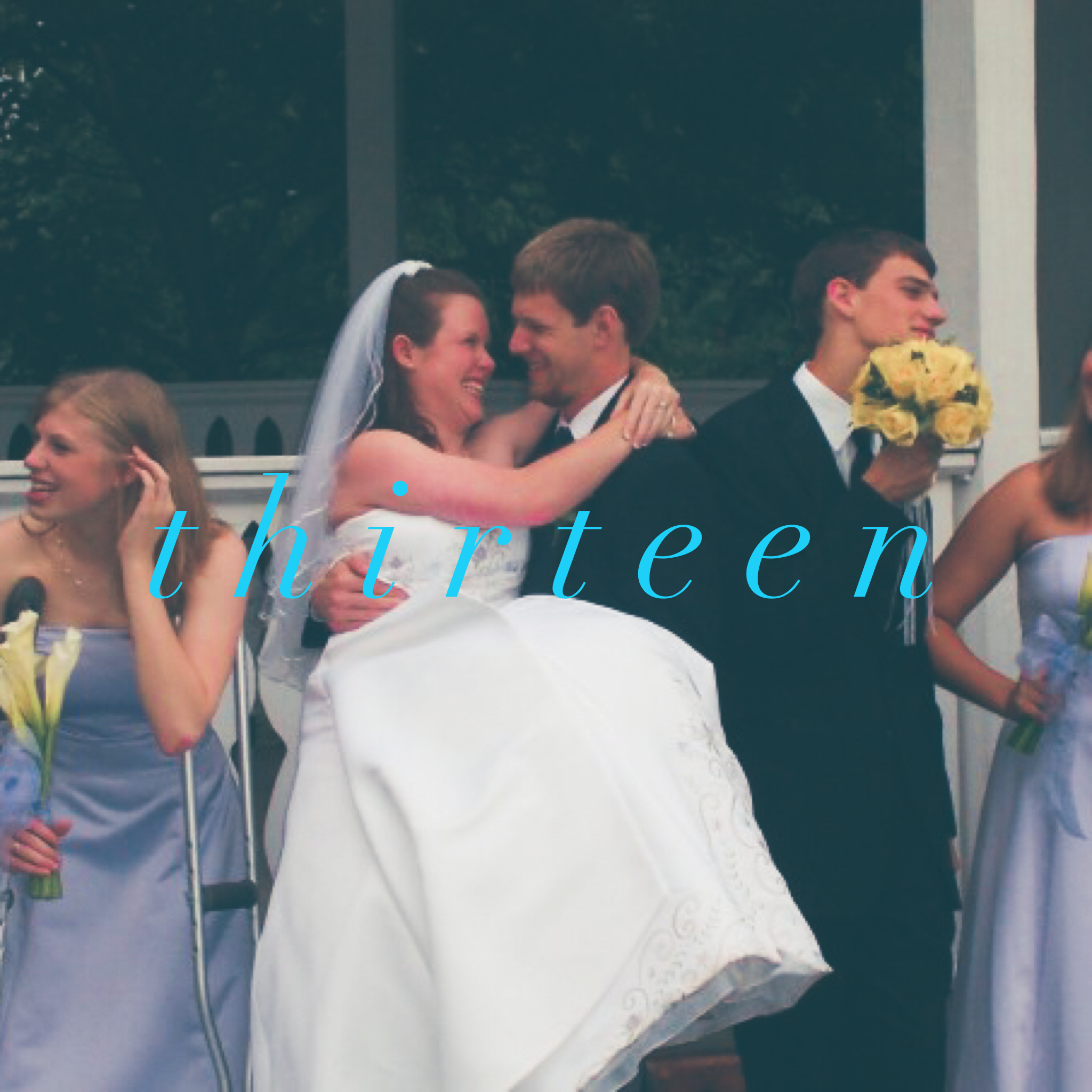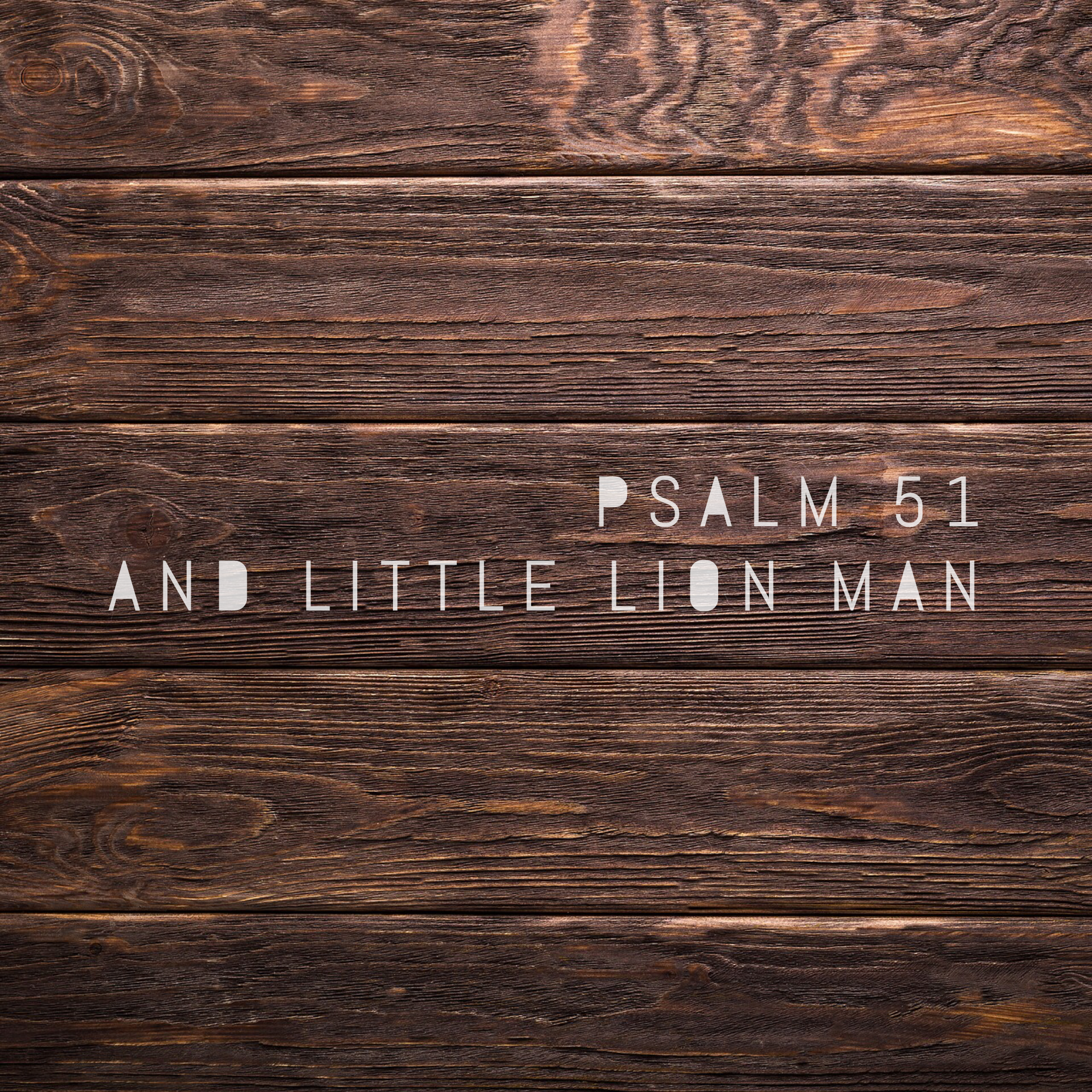Clear Eyes, Clean Heart (Psalm 51:1-12)
This is my sermon that I preached in all three services at Woodmont Christian Church on August 5. As always, this is the manuscript so it's the gist of what I said, but not entirely what I said.
The traditional backstory behind Psalm 51 is that it was written by David after the prophet Nathan called the King of Israel out for a particularly heinous episode. You can find the story in 2 Samuel 11-12, but I’ll give you the Cliff Notes version. David saw a married woman named Bathsheba bathing on a rooftop and wanted her. He sends for her. It’s important to remember that Bathsheba doesn’t really have any say over this matter. He’s the king and she’s a woman and the king will get what he wants. David sleeps with Bathsheba and gets her pregnant. He then brings her husband Uriah home from war, and, in what plays out like a scene from a really messed up sitcom, unsuccessfully tries to get Uriah to sleep with Bathsheba so that the husband will be none the wiser.
However, Uriah, even when he’s drunk, is too noble to go home and sleep with his wife when his fellow soldiers are sleeping in tents in a field. So David arranges with his general to have Uriah sent to the front lines of battle and then to call everyone but Uriah back effectively assuring the man’s death. And Uriah dies. David has Uriah killed for the wrong that David committed. Nathan calls David out for his great transgression and David, finally, recognizes the error of his ways and must reckon with the massive way in which he had sinned. Now sin can be a tricky topic and I can think of at least one reason why.
EA and I were once in Las Vegas. We had just camped and hiked the Grand Canyon. Vegas is sensory overload for anyone, but was especially overwhelming after our sojourn in the wilderness. As we walked the Strip, we wandered in and out of lavish hotels and casinos. The sky, which the night before was full of brightest stars I had ever seen, was now dominated by neon, searchlights, and constantly changing advertisements. The sidewalks and casinos buzzed with conversations, music blared from every direction, and there was a chorus of revelers yelling “Wooooooo!” with every passing party bus. We saw real live lions near slot machines and replicas of Venetian canals. We meandered through marble palaces and trudged over littered pamphlets for local prostitutes. Sin City was a lot to take in.
As we made our way to the fountains in front of the Bellagio (so I could pretend I just pulled off a multi-casino heist like George Clooney) I heard shouting across the street. It sounded like a fight. But as we traversed the teeming crosswalk towards the fountains, we could see that it was only one person causing the ruckus. He had on a wireless headset, there was a little portable speaker by his side, and in his right hand he clutched a Bible.
The street preacher shouted about sin to every person who passed his way. He yelled about the dangers of sex and drinking and gambling. He screamed about avoiding the fiery judgment of hell. He bellowed that we were all sinners in desperate need of rescue. And he might as well have been shouting at the wind; for all his yelling and screaming did not seem to connect with anyone. Some gawked awkwardly. Some stifled snickers. Others looked uncomfortable. Part of me fantasized about getting up there with him and counter-preaching about God’s grace in a broken world; sort of a homiletical rap battle. But mainly I was just sad because this guy was using the Bible to bludgeon people and, for many, he was affirming their views that the Christian faith was just a bunch of angry people screaming about sin.
That street preacher is one of the reasons why we often tiptoe around the topic. We don’t want to come off as the angry person shouting on a street corner. There are men, women, and children who have had the idea drilled into them that they are dirty, rotten, worthless, sinful individuals. I have heard many a person preach that God cannot look at us for our sin and it is only because of Jesus that God can stand the sight of us. That message is damaging. It is a problem and it is not the good news that the gospel is supposed to be. We are all made in the image of God and Jesus himself says that he came to earth out of God’s great love for us.
Yet sometimes we overcorrect, go to the opposite extreme, and try our best to ignore the subject of sin. Sin makes us uncomfortable. We have a natural inclination to want to believe that we are good people and sin runs counter to that narrative. We do not like for negative thinking to enter our minds. I understand the impulse to sweep sin talk under the rug, but here’s the problem: we sin.
The ancient Hebrew word for sin is chata (khaw-taw’), which means to miss a mark or to go wrong. This happens to us every day. I miss the mark all the time. I imagine you do too. People do things, whether intentionally or unintentionally, in which the individual goes wrong. Sometimes we make bad choices. Sometimes it’s not that we do something technically “bad,” but we sit on the sidelines when the opportunity to do good arises.
Either way we are missing the mark of loving God with all of our heart, soul, mind, and strength and loving our neighbor as we love ourselves. And when we miss the mark it sets things askew in our world. It hurts our relationship with people around us. It hurts our internal relationship. And it hurts our relationship with God, our creator. So to ignore the topic of sin helps no one because it is a reality with which all of us must grapple.
The psalmist who wrote today’s passage wrestled with the sin in his life. I told you the backstory involving David, Bathsheba, and Uriah because I wanted you to know that there was a world of hurt behind the apology in Psalm 51. But now I want you to forget that backstory. Often when we consider the shortcomings in our lives we look to those around us. We compare ourselves to the successes and failures in our proximity. As such, it would be easy for one to look at Psalm 51 and say to ourselves, “Well, I did not kill a man, so this does not apply to me.” Forget the backstory, because all of us have missed the mark and we need to have the courage to reckon with that part of our story.
I am not sure whether I love Psalm 51. I know that I do not love it like I love the parables of Jesus or other passages of encouragement. But I need Psalm 51. I need its reminder that I have missed the mark. As such, I don’t want you to listen with distance. Put yourself in the psalmist’s shoes. Wear the words like a coat. Be here now. We are not going to recite the entire psalm, but I do want us to say together the first verse: “Have mercy on me, O God, according to Your steadfast love. According to Your abundant mercy, blot out my transgressions.”
The word we translate as transgressions comes from the Hebrew pāša’ (peh’-shah), which means to revolt or rebel. To me this has a different vibe than the word transgression. Transgression sounds very legal and formal to me. A revolt or rebellion is far more dramatic. It implies a violent upheaval. Now we can see the actions of David as a revolt. He used his power over another human being. He tried to cover up his wrongdoing. He had someone killed. All of it is revolting. But what about an unkind word towards someone? What about passively sitting by while we allow societal systems to dehumanize others? Is that revolt?
I would say that it is. Scripture indicates that it is. It is a revolt against the kind of world that God desires: the kind of world we see put into motion in the life and ministry of Jesus. A world where people are lifted up, where goodness reigns, and justice flows down like a mighty river. Even our comparatively minor sins might end up being death by a thousand cuts. I remind us of this reality not to make any of us feel bad or worthless. But it is is to make sure that we see ourselves with clear eyes. Because our calling is to love God and love neighbors and thus we cannot turn a blind eye to the times when we miss that mark. That’s why we need prayers like Psalm 51 in our lives.
Though if I am being honest, there are aspects of this psalm that bother me. When the psalmist declares that his sin has been committed against God and God alone, it rings hollow. When we mess up, the offense is towards more than God. Perhaps the psalmist sees the hurt from his actions flowing back to the God who created all of those people and is poetically expressing that. It still bothers me.
And do not misunderstand. Our sin hurts God. It breaks the heart of God because of the pain it causes for everyone in; including us. Yet it is important that we do not let our repentance simply be a talk between us and God and leave 7 billion other people out of the conversation. As Martin Luther King Jr. said, “We are caught in an inescapable web of mutuality.” What I do reverberates from myself to God to my neighbor and to the world. So if I were to adapt verse 4, it would probably read like this:
God, against You have I sinned. Against my wife, against my sons, against my parents and siblings, my family and friends, against random acquaintances, strangers, the poor and vulnerable, the marginalized, those who follow You and those who do not believe. Against Your good creation and more than my soul can bear have I sinned and done what is evil in Your sight.
Because that’s the truth. When I do not follow God with my entire being, it hurts me and those around me. So the question becomes: What do we do? Because none of us are perfect and we miss the mark every single day. The good news is that this psalm is not only the raw confession of one’s capacity for wrong. It is also about the marvelous reality that is God’s grace. Because here is the good news, our missing of the mark does not have the final word. We do not have to be mired in never-ending revolt. The psalmist proclaims “Cleanse me with hyssop and I will be clean; wash me and I will be whiter than snow.” Not “I may be clean.” “I will be clean.” These are not the words of someone who sees God as one who angrily shouts from a street corner. These are the words of someone who believes, who hopes in, who trusts in God’s amazing grace. The one who has the courage to face the ways in which they have missed the mark can also be blessed with the comfort of knowing that God will give them a clean heart.
“Create in me a clean heart, O God, and put a new and right spirit within me. Do not cast me away from your presence, and do not take your holy spirit from me. Restore to me the joy of your salvation, and sustain in me a willing spirit.” The Hebrew word for create is bara’ (bah-rahw’). In the Old Testament, God is the only subject ever used in connection with that verb. When we mess up, we do not have to pull ourselves up by our own bootstraps. God is there for us. We don’t have to do this alone.
For some of you that is good news. For some of you that may difficult. Many people bristle at the idea of needing help. But our missing of the mark is so prevalent that—like one does in a twelve-step program—we have to admit that we are powerless to conjure up a clean heart on our own. We need that higher power, we need God to work in us. Every week at communion we talk about how Jesus says the cup represents a new covenant that is poured out for the forgiveness of many. In Romans 5:8, Paul writes “But God proves his love for us in that while we still were sinners Christ died for us.” Through Jesus, his life, his death, his resurrection, we have an opportunity for grace, for a clean heart. Despite our missteps, God has always been in the work of restoration and redemption.
Restoration brings me back to our street preacher and the other thing that rankles me about this psalm. Earlier on, the psalmist remarks that he was surely sinful from birth, sinful from the time his mother conceived him…which is odd. But I have been frustrated throughout the week at commentators who looked at this poetry dryly and said, “Through this affirmation, the psalmist is re-establishing the doctrine of Original Sin. The inherent evil at conception is why it is important for us to baptize infants.”
And I want to be like, “NO! You can believe that, but this psalm contains the words of a desperate man who has messed up so royally that he is plunging the depths of his soul and saying, ‘What I have done is so egregiously awful that I must have been sinful from the very beginning!” Because the language that is used after the psalmist asks for a clean heart—words like restore and sustain—imply a recovery of goodness. Wretchedness may be a state we find ourselves in, but it is not our intended default. God wants to restore us to the good intended for creation.
I frequently ask myself why I am still on Twitter because it is often like watching a car crash repeatedly into a dumpster fire. But every so often, something comes along the way that keeps me on there. Recently, I saw a link to a profile in The New Yorker about singer-songwriter Julien Baker. Hailing from Memphis, Baker often wrestles with her faith in her music. Much of the article centered on how she struggled with feeling like she was fundamentally flawed.
Yet the article ended on a note that grabbed my attention. She has been going to a church where a pastor recently commented that she does not believe that God created us to be garbage. God was not shouting from a street corner that Julien or any of us was a broken piece of filth. The author Jia Tolentino concluded, “For a long time [Julien] believed that she was born depraved, and had to learn how to be good. Now she’s wondering what it would be like to believe—really believe—that she was born beautiful, that everyone was, and we’ve been beaten down by a society that teaches selfishness, and what we have to do is try to unlearn it, note by note.”
That is what I wish I had counter-preached on that Las Vegas street corner. The message is not that you were born broken. You were born into a world where we break each other and ourselves. We have to recognize the ways in which we hurt each other and ourselves or we are just perpetuating that pain. God wants to help you and I unlearn the ways in which we hurt one another. God wants to help us reclaim the beauty with which we were born.
Through Jesus we can see what it truly means to be human in all of its wholeness. And so we have the opportunity for a clean heart. In God’s great mercy, we are told that if we confess our sins then God is faithful and just to forgive us. We have to have the clear eyes to see the ways in which we miss the mark. And we can trust that the God who loves more than we can imagine will create in us a clean heart so that we can be who God intended us to be all along.






